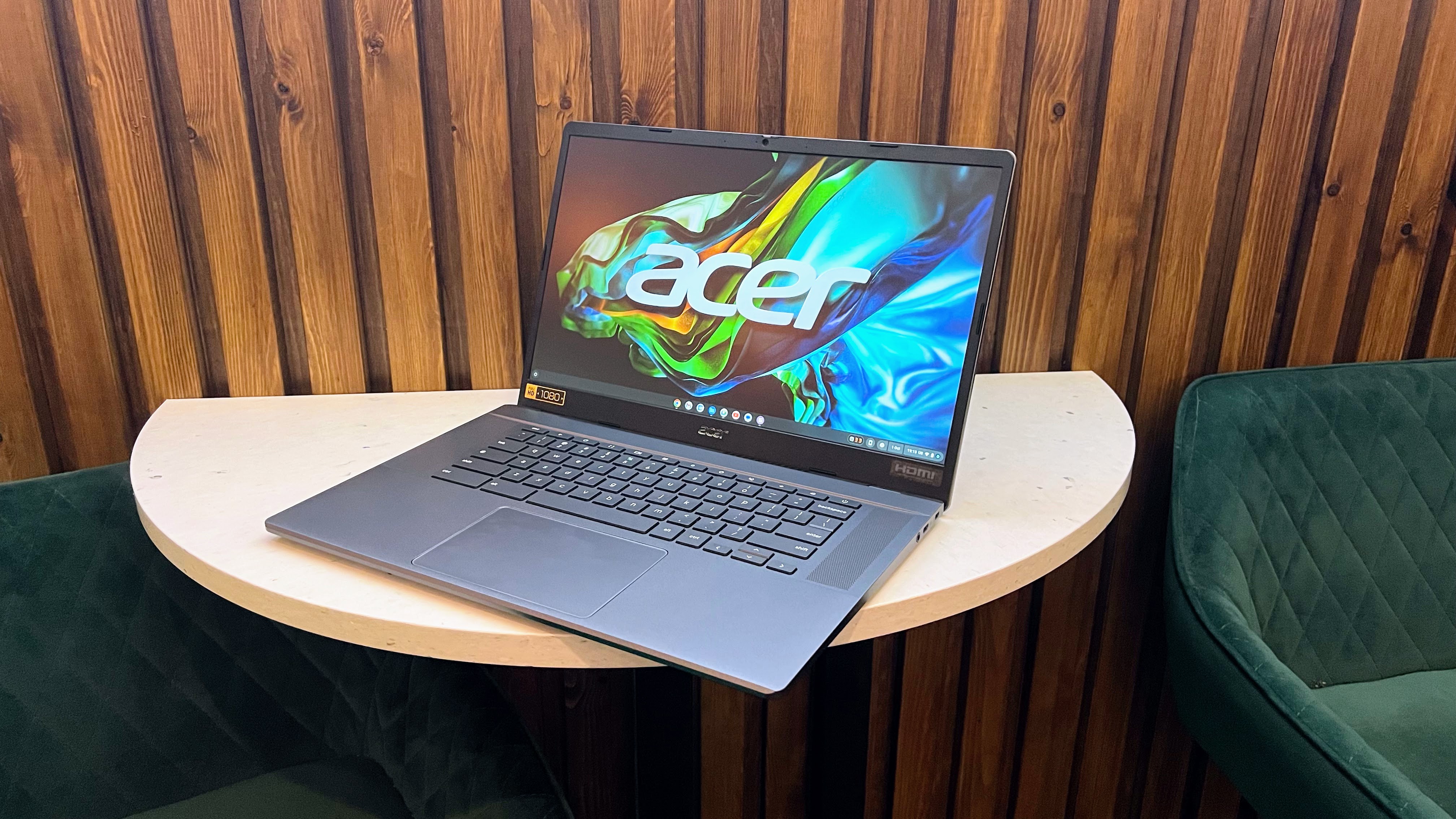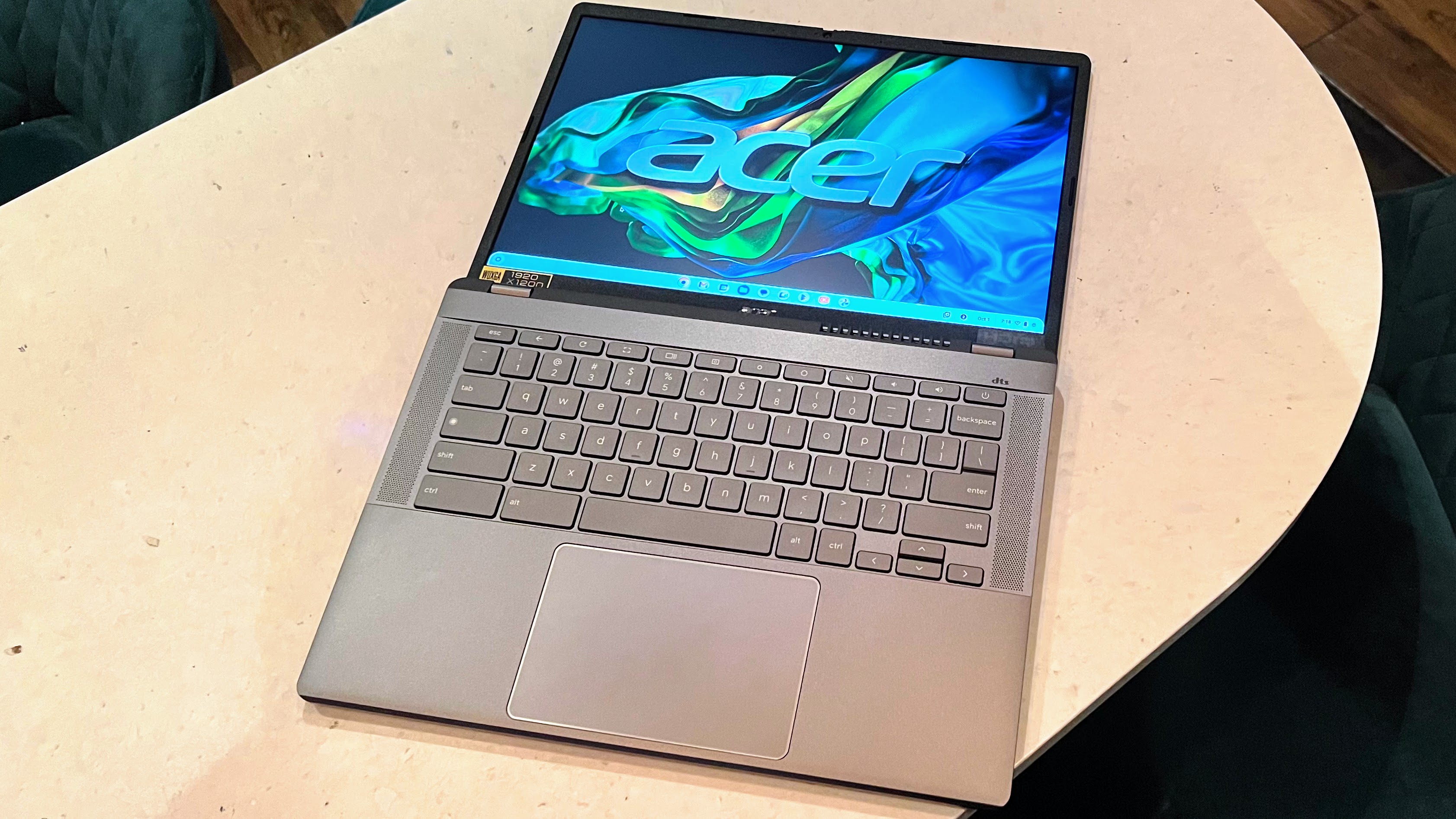Google’s Pixel 8 launch was great, but Chromebook Plus is what really caught my eye
Chromebooks could soon be true laptop-replacements – finally!

Sign up for breaking news, reviews, opinion, top tech deals, and more.
You are now subscribed
Your newsletter sign-up was successful
I love Google's Pixel devices, and nearly always have one in my gadget circulation. But the launch of the Pixel 8 and Pixel 8 Pro, joined by the Pixel Watch 2, at the October Made by Google product showcase, wasn’t the only thing from the search giant that grabbed my attention over the past week. Rather it was the Chromebook Plus initiative.
What was once known as Chromebook X was revealed to be a set of product and specs standards for Chrome OS laptops that will equip certified models with the hardware grunt to do more things natively on the machine, rather than leaning on browser-based tools.
"Oh so like a normal laptop," you might declare. Well, yes and also kinda no.
Getting a decent laptop isn’t hard, with a myriad of options from the likes of Acer, Asus, Dell, and more. But usually, you’ll need to spend around the $1,000 / £800 mark to get a Windows laptop that doesn't feel like it’s got a mix of compromises, such as a dull display, lackluster CPU, or poor storage options. And to get one of the best laptops, you need to spend more – my current machine of choice is the wonderful MacBook Air M2, but that’s a pricey $1,399 / £1,499.
But the Chromebook Plus program looks to offer a way to get a laptop with good specs for a good price, without all the compromises.
Acer in the hole

I recently got hands-on time with the Acer Chromebook Plus 515 and Chromebook Plus 514, which come with access to Intel or AMD processors, 8GB of RAM (there’s a 16GB option), and storage in 256GB and 512GB options. Added into the mix are 1080p displays, complemented by Full HD webcams, a decent port selection, and the likes of Wi-Fi 6E and Dolby DTS Audio support. And all for prices that start at $399 / £399.
With a design that Acer describes as “stylishly rugged” – think practical, utilitarian, rather than swathes of brushed aluminum – these Chromebooks feel like proper get-real-work-done laptops. I found the 250 nits of peak brightness on the displays to be perhaps a little underwhelming. And the keyboards felt a tad mushy (equally I could attribute that to being too used to typing on a MacBook Air M2 keyboard with shallower key travel).
Sign up for breaking news, reviews, opinion, top tech deals, and more.
However, the hardware is only one part of the formula. With the Chromebook Plus specifications, Chrome OS should be able to handle more on the device locally, such as running Photoshop and accessing AI-based features, as well as tapping into tools like the Magic Eraser in the native Google Photos app.

This is particularly exciting to me, as it means you can do more with Chromebooks without relying on an internet connection. Chrome OS has got a lot better at syncing things and offline access, but I’d argue low-spec Chromebooks are reliant on tapping into Google’s cloud-powered apps and can be limited if your Wi-Fi is spotty. Going by the Chromebook Plus initiative so far, such issues could be put to bed.
I’m also intrigued by how efficient a Chromebook Plus machine could be. As much as I love the flexibility of Windows 11, it does need a healthy amount of computing power and resources to run well. But a well-specced Chromebook running the lighter Chrome OS could open up all manner of performance options – say more CPU power for video rendering – when away from a power source and on the move. Add in native access to more Google AI-powered tools, and Chromebooks could really become laptops that have a broader appeal than use in education and as budget options to ‘proper’ laptops.
I’d argue that innovation in the world of computing has somewhat slowed down. Sure, Apple’s M-series chips have been a bit of a revelation, Intel has entered the discrete graphics arena, and Nvidia keeps pushing interesting AI-powered graphics tech, but not much has really been shaken up on the operating side.
So if the Chromebook Plus initiative could really make Chrome OS appealing to the everyday laptop user, and we could see a new wave of innovation arrive as developers and hardware makers look to tap into the tools Google can offer. If nothing else, it should make Microsoft and Apple prick their respective ears up.
You might also like
Roland Moore-Colyer is Managing Editor at TechRadar with a focus on phones and tablets, but a general interest in all things tech, especially those with a good story behind them. He can also be found writing about games, computers, and cars when the occasion arrives, and supports with the day-to-day running of TechRadar. When not at his desk Roland can be found wandering around London, often with a look of curiosity on his face and a nose for food markets.